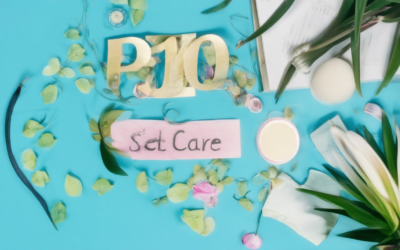Low self-esteem can hold us back from reaching our full potential, making it essential to understand its causes and effects. Boosting self-esteem requires a combination of self-awareness, positive affirmations, and supportive relationships. By recognizing the physical signs of low self-esteem and addressing the underlying issues, individuals can begin their journey towards building unshakeable self-esteem. This comprehensive guide explores the complexities of self-esteem, providing actionable tips and strategies for improvement.

Boosting Self-Esteem Fast
I’ve struggled with low self-esteem and confidence issues for years, but I’ve learned some effective ways to overcome them.
- Practice Positive Self-Talk: Pay attention to your inner dialogue and replace negative thoughts with positive affirmations. Speak kindly to yourself and focus on your strengths.
- Set Realistic Goals: Break down large goals into smaller, achievable tasks. Celebrate your successes along the way to build momentum and confidence.
- Surround Yourself with Positivity: Spend time with people who uplift and support you. Avoid toxic relationships and environments that drain your energy.
- Cultivate Gratitude: Reflect on the things you’re thankful for each day. Focusing on the good helps shift your perspective and builds resilience.
- Prioritize Self-Care: Take care of your physical, emotional, and mental health. Engage in activities that bring you joy and relaxation, such as exercise, meditation, or hobbies.
- Seek Professional Help: Consider therapy or counseling to work through underlying issues and develop coping strategies. A professional can provide personalized guidance and support.
- Challenge Negative Thoughts: Identify and challenge negative thought patterns that hold you back. Replace them with more realistic and positive ones.
- Become More Assertive: Practice assertive communication by expressing your needs and boundaries clearly. Stand up for yourself and set healthy limits.
- Foster a Growth Mindset: View challenges as opportunities for growth and learning. Believe in your ability to develop new skills and abilities.
- Develop a Self-Care Routine: Establish a daily routine that includes activities that nourish your mind, body, and spirit. Make time for self-reflection and journaling.
- Learn to Accept Compliments: Allow yourself to receive praise and recognition graciously. Acknowledge your achievements and celebrate your successes.
- Focus on the Present Moment: Let go of worries about the past or future. Stay present and mindful, focusing on what you can control.
Remember, building self-esteem takes time and effort. Be patient and kind to yourself as you work through these steps. With persistence and dedication, you can develop a stronger sense of self-worth and confidence.
Additional Resources:
The 5 Cs of Self-Esteem
I believe that understanding the 5 Cs of self-esteem is crucial for anyone looking to cultivate a positive and confident mindset.
-
Competence
Competence refers to our ability to perform tasks and activities with confidence and skill. It’s essential to recognize our strengths and accomplishments, no matter how small they may seem.
For example, if you’re struggling with public speaking, start by practicing in front of a mirror or recording yourself. As you become more comfortable, gradually increase the number of people you speak in front of.
This will help you develop a sense of competence and boost your confidence in your abilities.
-
Confidence
Confidence is closely tied to competence, as it’s built upon our ability to perform tasks and activities with ease. However, confidence goes beyond just skills – it’s also about feeling good about ourselves and our place in the world.
To cultivate confidence, try focusing on your positive qualities and accomplishments. Practice affirmations, such as “I am capable and competent,” or “I trust myself to make good decisions.”
Remember, confidence is not something you either have or you don’t – it can be developed and strengthened over time with practice and patience.
-
Character
Character refers to our moral principles and values. It’s about being honest, kind, and compassionate towards others, and treating them with respect and dignity.
To develop strong character, try practicing empathy and active listening. Put yourself in others’ shoes and try to understand their perspectives and feelings.
This will help you build stronger relationships and earn the respect of those around you.
-
Connection
Connection refers to our ability to form and maintain meaningful relationships with others. It’s about being able to communicate effectively, listen actively, and show empathy and compassion.
To cultivate connection, try scheduling regular check-ins with friends and family. Make an effort to stay in touch and show interest in their lives.
This will help you build stronger bonds and feel more connected to those around you.
-
Caring
Caring refers to our ability to take care of ourselves and others. It’s about prioritizing our physical, emotional, and mental well-being, and making time for self-care and relaxation.
To cultivate caring, try setting aside time each day for self-care. Whether it’s reading a book, taking a walk, or practicing yoga, make sure to prioritize your own needs and well-being.
This will help you feel more grounded and centered, and better equipped to handle life’s challenges.
By cultivating these five Cs – competence, confidence, character, connection, and caring – we can develop a strong foundation for self-esteem and live a happier, healthier, and more fulfilling life.

Fixing Low Self-Esteem
I’ve struggled with low self-esteem for years, and I’m still learning how to overcome it.
-
Recognize Your Thoughts
Start by becoming aware of your thoughts and how they affect your emotions. Notice when you’re thinking negative thoughts about yourself, and challenge those thoughts by asking yourself if they’re really true.
-
Practice Self-Care
Taking care of your physical health can have a big impact on your mental health. Make sure to get enough sleep, eat nutritious food, and exercise regularly.
-
Build Positive Relationships
Surround yourself with people who support and encourage you. Having positive relationships can help boost your self-esteem and make you feel more confident.
-
Focus on Your Strengths
Rather than dwelling on your weaknesses, focus on your strengths and accomplishments. Celebrate your successes, no matter how small they may seem.
-
Seek Professional Help
If your low self-esteem is severe or interferes with your daily life, consider seeking help from a mental health professional. They can provide you with personalized guidance and support to help you overcome your struggles.
Remember, overcoming low self-esteem takes time and effort, but it’s possible with the right mindset and support. By practicing self-care, building positive relationships, focusing on your strengths, and seeking professional help when needed, you can start to build a more positive and confident sense of self.
Additional Resources:

The Root Cause of Low Self-Esteem
Low self-esteem can stem from various factors, including unhappy childhood experiences, poor academic performance, and ongoing stressful life events.
- Unhappy Childhood Experiences: Growing up in an environment where parents or other significant figures were excessively critical can significantly impact a person’s self-esteem. This criticism can lead to feelings of inadequacy, low self-worth, and difficulty developing a positive sense of identity.
- Poor Academic Performance: Struggling in school due to lack of confidence or difficulties with learning can further erode self-esteem. This can result in feelings of failure, shame, and decreased motivation to succeed academically or personally.
- Ongoing Stressful Life Events: Experiencing prolonged periods of stress, such as relationship breakdowns or financial troubles, can contribute to low self-esteem. Chronic stress can impair cognitive function, leading to increased anxiety, depression, and decreased self-confidence.
Understanding the Impact of Negative Influences
Negative influences can have a profound effect on self-esteem, often perpetuating a cycle of self-doubt and low self-worth. Recognizing these influences and addressing them through therapy, support groups, or self-help strategies can be crucial in rebuilding self-esteem.
- Critical Parenting: Parents who consistently criticize their children can instill a deep-seated fear of failure and low self-esteem. Children may develop a negative self-image, believing they are inadequate or unworthy.
- Social Comparison: Constantly comparing oneself to others can lead to feelings of inadequacy and low self-esteem. Social media platforms, in particular, can exacerbate this issue, fostering unrealistic expectations and promoting competition.
- Lack of Positive Reinforcement: Failing to receive adequate praise or recognition can undermine self-esteem. People may feel undervalued, overlooked, or unappreciated, leading to decreased motivation and self-confidence.
Breaking the Cycle of Low Self-Esteem
Rebuilding self-esteem requires a multifaceted approach, incorporating self-reflection, social support, and evidence-based therapies. By acknowledging and addressing the root causes of low self-esteem, individuals can begin to develop a more positive and compassionate relationship with themselves.
- Self-Awareness: Developing self-awareness involves recognizing thought patterns, emotions, and behaviors that contribute to low self-esteem. This awareness enables individuals to challenge negative self-talk, reframe negative thoughts, and cultivate a more realistic and compassionate self-image.
- Social Support: Surrounding oneself with supportive friends, family, or a therapist can provide a safe space to explore and work through issues related to low self-esteem. Social connections can offer validation, encouragement, and a sense of belonging.
- Evidence-Based Therapies: Cognitive-behavioral therapy (CBT), acceptance and commitment therapy (ACT), and psychodynamic therapy are effective treatments for low self-esteem. These therapies help individuals identify and challenge distorted thinking patterns, develop coping skills, and improve relationships.
The Red Flag of Low Self-Esteem
When it comes to recognizing the signs of low self-esteem, there are several red flags to look out for.
- People Pleasing Tendencies: People with low self-esteem often have a strong need to please others, which can lead to feelings of resentment and burnout.
- Fear of Rejection: Individuals with low self-esteem may struggle with saying “no” due to a deep-seated fear of rejection or disapproval.
- Lack of Boundaries: Those with low self-esteem may have difficulty setting and maintaining healthy boundaries, leading to emotional exhaustion and feelings of overwhelm.
- Negative Self-Talk: Negative self-talk is a common symptom of low self-esteem, with individuals often criticizing themselves harshly and focusing on their flaws.
- Self-Sacrificing Behavior: People with low self-esteem may engage in self-sacrificing behavior, putting others’ needs before their own and neglecting their own well-being.
In order to overcome these red flags and develop a healthier sense of self-worth, it’s essential to practice self-awareness, set realistic goals, and cultivate a positive mindset.
Coping Mechanisms for Low Self-Esteem
- Practice Self-Care: Engage in activities that promote relaxation and stress reduction, such as meditation, yoga, or deep breathing exercises.
- Challenge Negative Thoughts: Learn to recognize and challenge negative thought patterns, replacing them with more balanced and realistic ones.
- Set Realistic Goals: Break down large goals into smaller, achievable steps, and celebrate successes along the way.
- Seek Support: Surround yourself with supportive friends, family members, or a therapist who can offer encouragement and guidance.
- Prioritize Self-Awareness: Develop a deeper understanding of your values, strengths, and weaknesses, and use this knowledge to inform your decisions and actions.
Building Confidence and Self-Worth
By implementing these coping mechanisms and practicing self-awareness, you can begin to build confidence and self-worth, ultimately overcoming the red flags of low self-esteem.
Remember, developing a positive sense of self-worth takes time and effort, but it’s worth it to live a happier, healthier life.

Best Therapies for Low Self-Esteem
Cognitive behavior therapy CBT has been widely recognized as one of the most effective treatments for low self-esteem.
- Dialectical Behavior Therapy DBT: Developed by Marsha Linehan, DBT combines cognitive-behavioral techniques with concepts of mindfulness and acceptance to help individuals manage emotions and develop self-awareness.
- Acceptance and Commitment Therapy ACT: ACT focuses on helping individuals accept their thoughts and feelings while taking action towards valued life goals, promoting psychological flexibility and resilience.
- Psychodynamic Therapy: This type of therapy explores the unconscious motivations and underlying causes of low self-esteem, aiming to increase self-awareness and promote positive change.
- Humanistic Therapy: Humanistic approaches emphasize personal growth, self-actualization, and empathy, helping individuals develop a more compassionate and accepting relationship with themselves.
In addition to these therapies, several self-help strategies can complement professional treatment:
- Mindfulness Practices: Regular mindfulness exercises can help reduce stress and anxiety, increasing self-awareness and self-acceptance.
- Self-Care Activities: Engaging in activities that bring joy and relaxation, such as exercise, hobbies, or spending time in nature, can enhance overall well-being and confidence.
- Social Support: Surrounding oneself with supportive friends, family, or a therapist can provide emotional validation and encouragement, fostering a sense of belonging and self-worth.
- Gratitude Practice: Focusing on the things one is grateful for can shift perspective, cultivating a more positive outlook and increased self-esteem.
While these therapies and self-help strategies can be beneficial, it’s essential to consult with a mental health professional to determine the best course of treatment for individual needs.




0 Comments